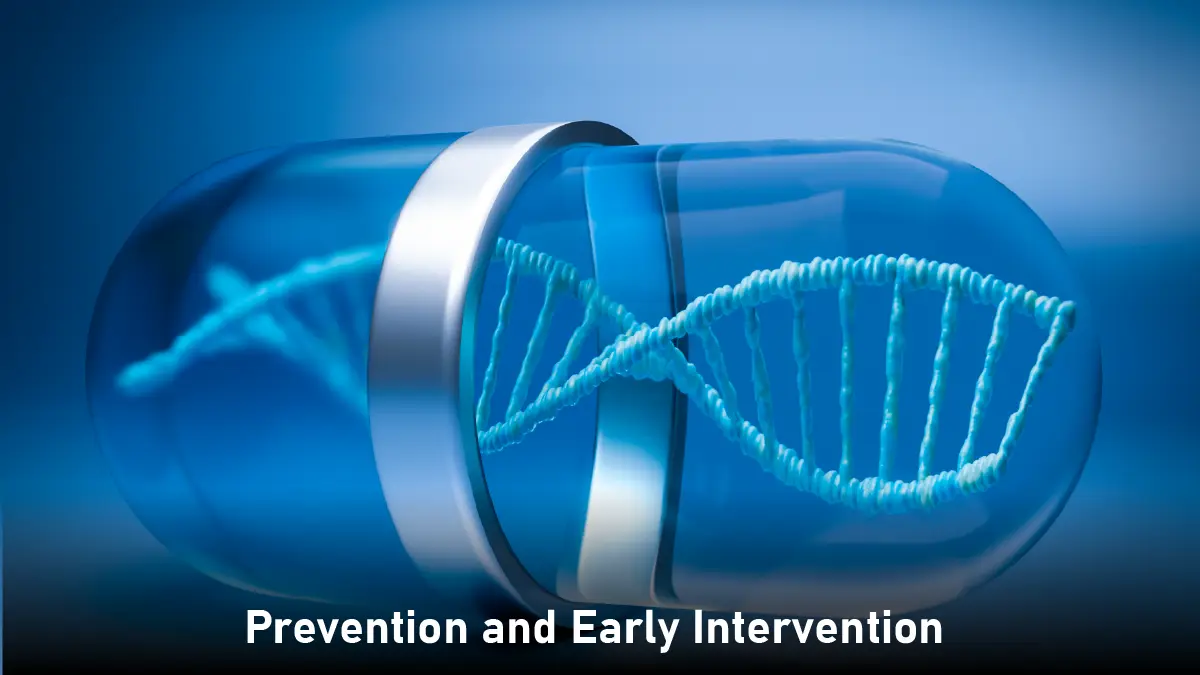The healthcare world is changing fast. This change is driven by something powerful yet unseen: genomics. Genomic science was once limited to labs and journals. Now, it’s changing clinical practice. It redefines how we diagnose, treat, and prevent diseases. Leaders must understand genomics during this transformation. It’s not optional; it’s essential. The blend of biology and technology opens new doors for hyper-personalized care. However, it requires us to rethink traditional healthcare models.
From Mass Medicine to Precision Care

For decades, healthcare operated on a one-size-fits-all model. Treatments were made for the ‘average’ patient. This often ignores the genetic details that affect how people respond to therapies. Genomics is changing this view. It shows the unique biological blueprint of every individual. Scientists analyze DNA sequences to find mutations. This helps them predict disease risks and identify personalized treatments.
Consider cancer treatment, where genomics has already rewritten the playbook. Traditional chemotherapy works well for some people, but it doesn’t help everyone. This difference happens because tumors have unique genetic profiles. That’s why genomic profiling is so important; it helps us find the best treatment for each patient. Doctors found that imatinib, a cancer drug, helps patients with chronic myeloid leukemia a lot. This targeted treatment focuses on the BCR-ABL gene fusion, making it more effective. Another great choice is CAR-T cell therapy. It uses the patient’s own immune cells to fight cancer. These breakthroughs show big progress toward a cure. They change how we see what medicine can do.
Prevention and Early Intervention

Genomics changes healthcare. It changes how to treat sick people to manag health ahead of time. BRCA1/2 gene mutations greatly raise the risk of breast and ovarian cancer. Women with harmful BRCA1 or BRCA2 mutations face a 60% or greater lifetime risk of breast cancer. In contrast, the risk in the general population is just 13%. Genetic testing puts high-risk people in control, so they can take action and stay healthy. It’s all about being proactive. By checking for BRCA1/2 mutations, people at high risk can catch any problems early and stay on top of their health. They can get more check-ups or even surgery. This can greatly lower death rates.
Cardiovascular health is primed for disruption. Polygenic risk scores use data from many genetic variants. They help doctors predict heart disease risk early, even before symptoms show. Patients can use this knowledge to change their lifestyles or take preventive medications. This can improve their health paths. This change shows an important fact: genomics gives patients control over their care. It focuses on prevention instead of just treating diseases.
Also Read: Decoding Synthetic Biology: Definition, Capabilities and Examples
Balancing Innovation with Ethics
Genomic data is powerful, but it brings up tricky ethical and logistical issues. Sequencing one genome creates terabytes of data. Genomic sequencing creates a huge volume of data. This data brings challenges for storage and analysis. By 2025, it’s expected that we will need about 40 exabytes, or 40 million terabytes, to store genome-sequence data worldwide. Ensuring robust data management systems is crucial. It requires strong systems for storage and analysis. Leaders need to invest in cloud solutions and AI platforms. These tools help manage large amounts of data. They make sure data is easy to access while keeping it secure.
Privacy concerns loom equally large. Genomic information is inherently identifiable, making it a potential target for misuse. Recent breaches, like the one in 2023 with a major biobank, show weaknesses in current systems. To build trust, organizations must adopt stringent encryption protocols and transparent consent frameworks. It’s also important to tackle biases in genomic databases. These databases often have too many samples from people of European descent. Diversifying datasets is not only right; it’s crucial for fair healthcare outcomes.
Case Studies
Real-world applications demonstrate genomics’ game-changing power. deCODE Genetics in Iceland has sequenced the genomes of over 160,000 people. This is more than half of the adult population in the country. They found genetic markers linked to diseases like Alzheimer’s and heart disease. This discovery helps in drug development and shapes public health policies. This project speeds up drug development and influences public health policies. As a result, Iceland leads in precision medicine.
The All of Us Research Program in the United States has found over 275 million new genetic variants. These came from nearly 250,000 participants. This research shows how some genetic variants can influence the severity of COVID-19. This breakthrough enables personalized risk assessments and treatments. Teamwork in genomics is important. It leads to new discoveries and improves patient care. Leaders can improve results by partnering with governments, schools, and biotech companies.
Challenges and Opportunities
Genomic integration faces obstacles, but its potential remains vast. The cost of genome sequencing has dropped dramatically. It went from about US$ 300 million for a draft human genome during the Human Genome Project to around US$ 1,000 today. Reimbursement models need to keep pace with innovation. Insurers must also cover genetic tests. We must push for policy updates linking financial rewards to patient results.
Education is essential. Clinicians need training to interpret genetic data and communicate risks effectively. Public awareness campaigns must demystify genomics, dispel misconceptions, and promote informed decision-making. 23andMe leads in direct-to-consumer genetic testing. Their success depends on making tests easy to get and sharing information responsibly. For businesses, genomics opens lucrative opportunities. Pharmaceutical giants are now investing in gene therapies for rare diseases. Their success depends on making tests easy to access while sharing information responsibly.
For businesses, genomics opens lucrative avenues. Pharmaceutical giants are now investing in gene therapies for rare diseases. This market was once seen as unprofitable. Startups focused on CRISPR diagnostics and AI genomic analysis are getting a lot of venture capital. Leaders who adopt these technologies early will influence healthcare’s future. They will also gain important competitive edges.
A Call to Action for Global Leaders
The genomic era demands visionary leadership. Here’s how to lead effectively:
Focus on Data Governance: Set ethical rules for using genomic data. This ensures privacy and promotes inclusivity. Collaborate with regulators to craft policies that encourage innovation while safeguarding patient rights.
Invest in Infrastructure: Build interoperable systems for data sharing and analysis. Partner with tech firms to harness AI for pattern recognition in genomic datasets.
Cultivate Collaboration: Shatter barriers between sectors and unite efforts. Boost public-private partnerships to drive major genomic projects, sharing knowledge worldwide.
Empower Stakeholders: Arm healthcare providers with essential genomic knowledge. Talk openly with patients about the benefits and drawbacks of genetic testing.
Champion Equity: Address disparities in genomic research and access. Support initiatives that include underrepresented populations in clinical trials and databases.
The Future is Personalized
Genomics is not a distant promise; it’s a present reality reshaping healthcare at every level. Its uses are broad, from curing rare diseases to enhancing wellness plans. To realize this potential, we need more than just scientific skill. We also need ethical, collaborative, and forward-thinking leadership.
In the mix of biology and technology, it’s clear: healthcare’s future is more than just personalization. It’s human. By using genomics wisely, leaders can create a world with personalized medicine. Here, prevention is more important than treatment, and health equity is possible. The question is not if genomics will change healthcare. It’s about how fast we can adapt to its power.






